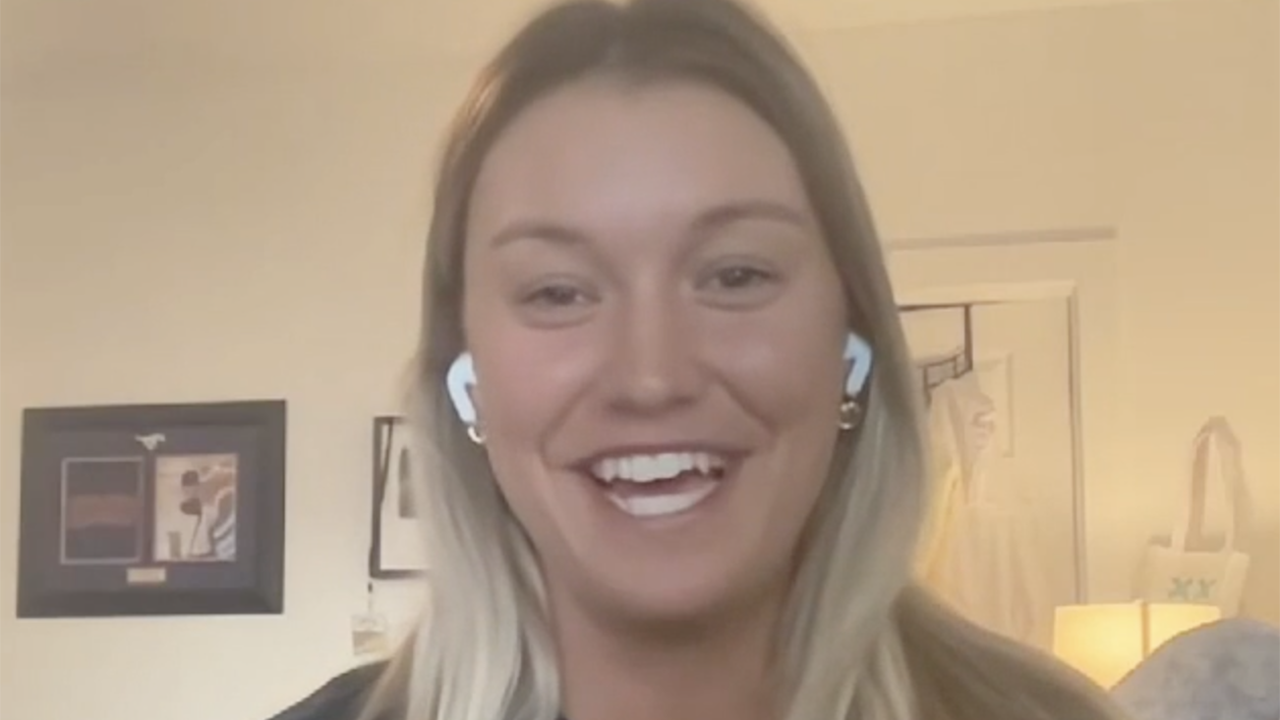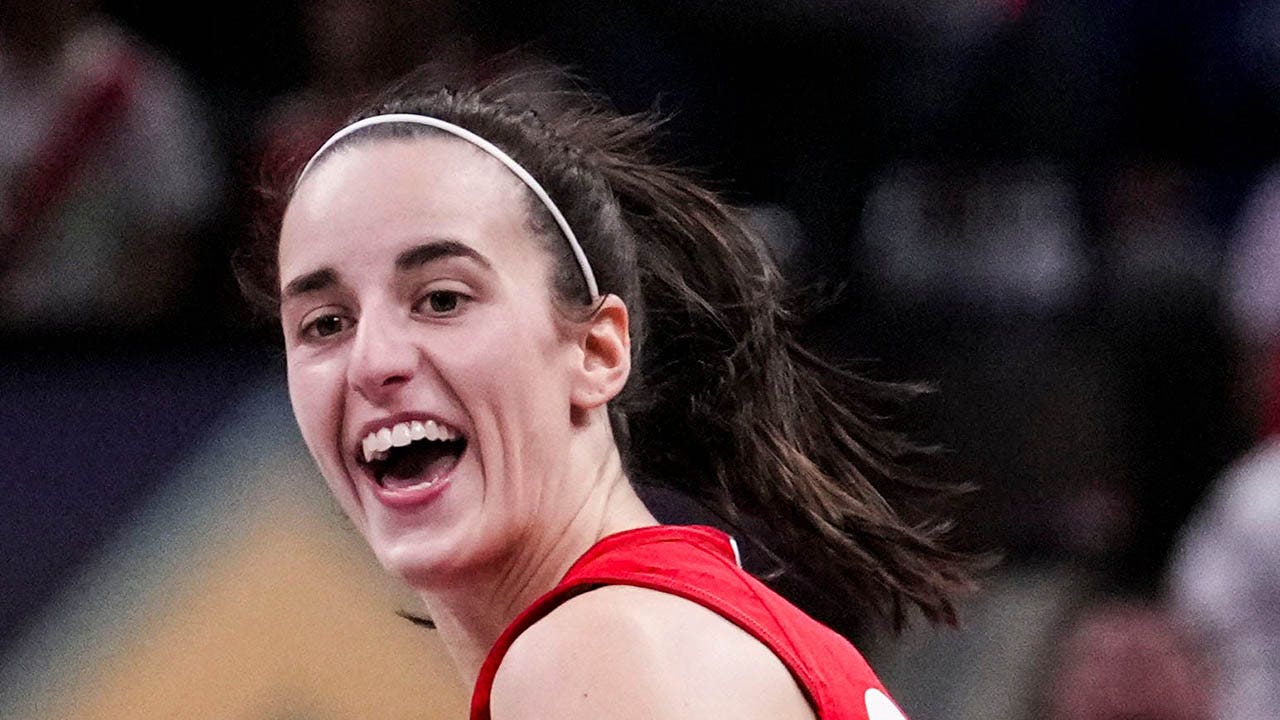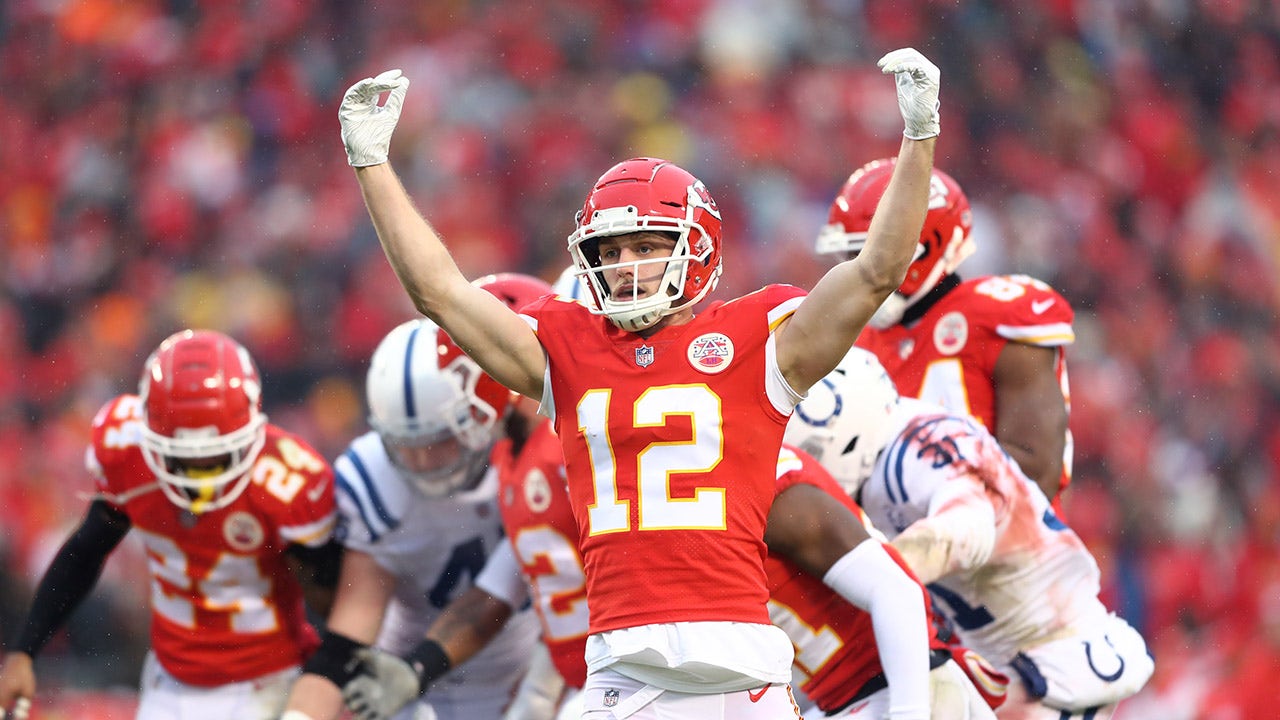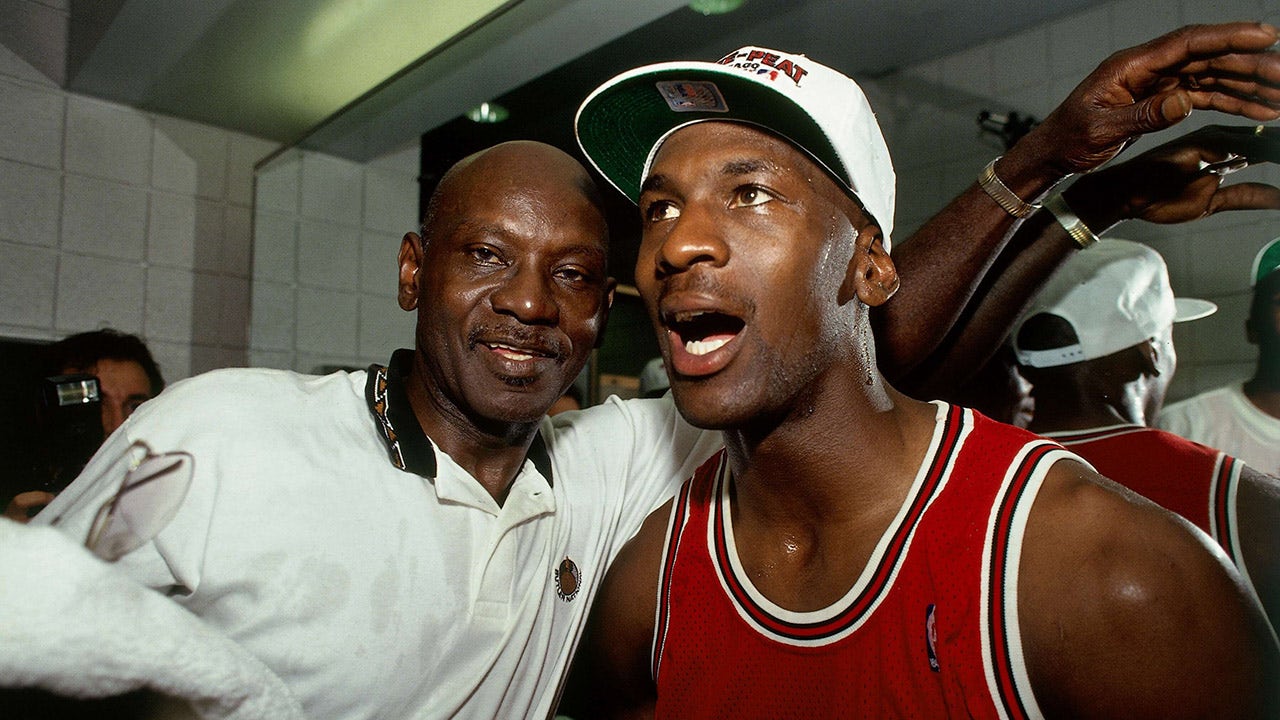The vulnerability is DeMar DeRozan’s superpower.
It’s there throughout his new autobiography, “Above the Noise: My Story of Chasing Calm,” in which the six-time NBA All-Star and newest member of the Sacramento Kings bares his soul in the kind of way we rarely see from elite athletes.
“(Vulnerability) goes a long way, especially for us as athletes being looked at like we’re superheroes at times,” DeRozan said in a recent phone interview. “You never really get to see the Clark Kent side. Everybody always sees us saving the day (on the court), doing something heroic and not knowing that, at the end of the day when you take off that suit, there’s a lot of things that you carry.”
It’s one thing to pull the cape off just a little bit, though, only to put it back on when the uncomfortableness of sharing one’s truth publicly sets in. But the 35-year-old — whose 3:06 a.m. tweet about his battle with depression on Feb. 7, 2018, inspired a real conversation about mental health and athletes, and who quietly boasts one of the best resumes of any player in today’s game — stays true to those real roots in his 210-page book that was written with co-author Dave Zarum.
From his time growing up in Compton, Calif., where loss and pain became themes that still haunt him and he “never dreamed” of sharing his emotions, to the highs and lows of his NBA career and everything in between, DeRozan reminds us all that money doesn’t, in fact, buy happiness in his three-dimensional look at life as a wildly successful pro athlete. His decision to share deeply personal stories — from his childhood spent surrounded by gang culture to the loss of his father, Frank, in February 2021, to his own journey as the father of five kids and much more — amounts to a public therapy session. And to hear DeRozan tell it, that choice to open all the way up to the world was easy once he learned about the impact that vulnerability could make.
It all goes back to that tweet.
As DeRozan lay awake during those early morning hours, having returned home to his native Los Angeles for that year’s All-Star Weekend in those final few months with the Toronto Raptors, the stress of it all had become too much to bear. He was overwhelmed by the obligations that came with a hometown return, exhausted by the cross-country trips he’d been making to visit his ailing father in Los Angeles, unhappy that he hadn’t seen his two daughters in more than a month and desperate for a break that wasn’t coming anytime soon. On that first night back home, when he was scheduled to attend a Kendrick Lamar concert and the annual All-Star party hosted by TNT’s Kenny Smith, DeRozan decided instead to sit for hours alone in his basement with his thoughts.
“This depression get the best of me…” he eventually tweeted before going to sleep.
This depression get the best of me…
— DeMar DeRozan (@DeMar_DeRozan) February 17, 2018
When he awoke later that morning, DeRozan was confused and stunned by the global reaction to his sentiment. Why would sharing his battle with something so common — depression disorders affect approximately 280 million people worldwide — cause such a stir? The truth, as he knows now, is that the response was much more about the messenger than the message.
Prominent athletes had, by and large, historically steered clear of discussing this once-taboo topic. But DeRozan’s choice to share his struggles sparked change, with Kevin Love opening up about his mental health less than a month later and non-NBA stars such as Michael Phelps, Naomi Osaka, Simone Biles and so many others following suit in the years to come.
By the summer of 2019, the NBA had expanded its mental-health program by requiring teams to employ mental-health professionals who would be anonymously available to players. The growth has continued from there, with players across the league taking advantage of the kinds of services that weren’t provided when DeRozan entered the league out of USC in 2009.
As DeRozan discussed at length with The Athletic, he takes great pride in this off-court part of his legacy. And the best part, for DeRozan and the Kings team that gave him a three-year, $74 million deal in the trade with the Chicago Bulls and San Antonio Spurs that brought him to town in early July, is that he’s still going strong on the court too.
(This interview has been lightly edited for clarity and brevity.)
DeMar, as you know, most athletes are not comfortable sharing like this. Whether it’s your childhood or the loss you’ve been through, your family life now, all these different things. So what was your journey to get to a place where you were comfortable letting the world in, and why did you ultimately decide that you were willing to?
I wasn’t always completely comfortable. It was one of those courageous things where you kind of take a step back and look at something being bigger than you, in a sense, especially when I realized the impact you can have on helping others. It is a journey. I’m still far from perfect, but you see how much you inspire the next person who you probably never even came across, never even met, by showing any sort of vulnerability.
In that vein, I’ll follow your lead and share the fact that I suffered from depression pretty severely in high school, so I definitely appreciate the value in you sharing your story. But when you talk about making an impact on people you didn’t know, I wondered if there were stories that you didn’t share that played a part in your choice.
Yeah, I remember when I was playing with San Antonio (after the Raptors traded him to the Spurs in the summer of 2018), I was walking off the court, warming up before the game in Denver, and a guy pulled me off to the side. He was sitting courtside. I didn’t know if he worked for the organization or what, but he just stopped me. I could tell through his conversation and through his greeting with me that whatever he was going to say was very heartfelt. And I just remember him telling me (how) his son was very suicidal. I was one of his favorite players. And when I came out telling my story, it changed his whole perspective, and he opened up and spoke about a lot of things he was dealing with. Something like that hit extremely hard. I didn’t know the dude, and I’ve never seen him again. It’s crazy because every time I go to Denver, I always see if I’m gonna see the same guy again. But I just remember him pulling me to the side telling me that my story helped save this son from being extremely suicidal. So that was definitely touching.

DeMar DeRozan, who played for the Bulls last season, is a six-time All-Star with over 23,500 career points. (Wendell Cruz / USA Today)
The book made me think about the NBA and where the league is now on the mental-health front. But how are you feeling about that ecosystem now and the infrastructure for players?
You’ve seen it grow ever since guys like myself, Kevin Love and countless others came out and started to share. The infrastructure that they started to build of making it accessible for us to have therapy, having therapists on-site to travel with us on a daily basis. It becomes 100 percent confidential for the players. It’s not someone who’s connected to the front office, where the therapist will go back and say (what was shared). They really (built) something that made guys feel comfortable to have access on a daily basis to have help. I had teammates recently, playing in Chicago, where before practice, after practice or even on the road, they’ll go to dinner with the therapist, and it really helped them through a lot of things. I never asked the specifics of things that they talked about, but it was used frequently. You see the connection that players have with the therapist, whether it was at breakfast before practice, laughing and joking about certain things, (interactions) that give a comfort for guys to be able to go and handle whatever business they need to handle within.
It wasn’t even a thing when I first came into the league. You had all your other necessities when it came to sports as far as weight training, nutritionists, film guys, workout guys. But that’s kind of where it stopped. You didn’t really have the personal infrastructure that was needed for certain players, especially young players.
I thought it was pretty neat that Spurs coach Gregg Popovich wrote the foreword. You talk in the book about how he was really there for you when your father died, and then I heard over the summer that — because of the relationship you have there — the Spurs made it clear to you in free agency that they were willing to help you get where you wanted to go if a scenario like that emerged.
(Per league sources, the Spurs showed interest in bringing DeRozan back to San Antonio to aid in the Victor Wembanyama era. But the Spurs also made it clear they would be willing to help him get to the team of his choice by helping facilitate a three-team trade. DeRozan, who played for the Spurs from 2018 to 2021 before signing with the Bulls, was sent to Sacramento in a deal that moved Harrison Barnes to the Spurs and Chris Duarte, along with two second-round picks, to the Bulls.)
Yeah, (that gesture) just shows the character of not just Pop, but the whole Spurs organization. Everything about that place — it’s hard to even find words to put it into detail. They treated me like I was Tim Duncan. And that’s just the amount of respect, love and admiration I’m gonna forever have toward Pop and that whole organization. There’s a lot of things they didn’t have to do for me, and there’s a lot of things I didn’t even ask for. You’ve got to give them all the credit, because they’re definitely special people.
I mean, I’ll never forget the first conversation I had with him (after the Raptors trade). It was “I didn’t trade you. I traded for you.” That kind of stuck, and from there on out, he just challenged me to be an even better player than what I was in ways that I never could have expected. And it was such a necessity for me for my career, for longevity, understanding and the knowledge that he really gave to me. It meant a lot, on and off the court. That’s what makes it so special, and that’s why I had to have him do the foreword for the book.
You’re pretty open in the book about wanting to play in your hometown. But this summer, it sounds like that interest wasn’t reciprocated by the Lakers or the Clippers. There’s a pretty strong argument to be made that both teams could use you, so how did that hit you?
Yeah, you just learn how to deal with it from a business standpoint. Obviously I have my selfish reasons of wanting to be able to play at home, (but) sometimes it just doesn’t work out that way. And sometimes it probably isn’t the best decision for me either. So after that didn’t happen, I didn’t dwell on it. I wasn’t mad. They made their choice, and I just left it at that.

GO DEEPER
Hollinger: Don’t expect rings, but Kings’ floor-raising DeMar DeRozan trade adds up
On the Lakers’ side, it sounded like LeBron James and Anthony Davis were pretty big on the idea. But just like three years ago (before the Lakers did the Russell Westbrook deal), it didn’t go anywhere. Did it seem like it was going to happen this time?
Yeah. Yeah, it did. But after the last time, the last situation, you really don’t get your hopes all the way up. I think the first time before I went to Chicago (in 2021), that was the closest it had been. And even for me, I thought it was going to be that. But when that didn’t happen, I didn’t have high hopes because you already see how it could play out.
This Kings move has been received pretty well across the league, but I still feel like folks aren’t truly gripping how good you still are at this age. To that point, I looked at a stat the other day that blew me away: If you score at a similar rate for the Kings in the next three seasons that you did the past three seasons with the Bulls, you’d be pushing for top 10 all-time in NBA scoring (DeRozan is 31st, just 86 points behind Stephen Curry).
That sort of history doesn’t really reconcile with the way you’re talked about, though. So with that in mind, how do you feel about the discussion that surrounds you in terms of your career?
To be honest, I think I just look at it like I want to give it everything I’ve got while I’m doing it. And when it’s all said and done, I’ll let everything speak for itself, you know what I mean? I don’t try to overdo it. I just try to stay consistent. Whenever I choose to hang it up, I want to be able to say I gave it everything I had on the court, off the court and be able to just really sit back and soak it all in.
How do you see the Kings’ situation and what it can become? We all know they’re not typically on players’ short lists in free agency, and you already go down as the highest-profile free agent pickup in their history.
No, it definitely took me a minute (to consider them). To tell you that they were on my radar beforehand — no, they definitely weren’t. But sometimes you’ve gotta let the fog clear to make a decision, and that’s kind of what I did. You try to look at the landscape to make everything make sense, and where you feel you’re going somewhere where you’re getting what you deserve and you have an opportunity to compete at the highest level. Both ends of that were met. And looking at it, it just felt like it was the perfect opportunity.
I am extremely excited, just for the opportunity of feeling like I could be the missing piece that they needed. Me just being a fan of the game, I pay attention to everything that comes about in our league. And you see the excitement that they had two years ago (when they made the playoffs for the first time since 2006). You see the fan base. You see the winning culture that they were fighting towards. And anything (related to) winning — when you see it from the outside, it lets you know as a competitor and as a winner, that it’s something you want to be a part of. Even when they had the theme of lighting the beam, it just shows you how connected they were to the fans. The organization was connected with the players in a sense of doing everything we possibly can to compete at the highest level to win. And it’s just something I see myself being a part of and feel like I can take it over the top.

The story of the greatest players in NBA history. In 100 riveting profiles, top basketball writers justify their selections and uncover the history of the NBA in the process.
The story of the greatest plays in NBA history.
Pre-order
(Top photo: Rocky Widner / NBAE via Getty Images)






